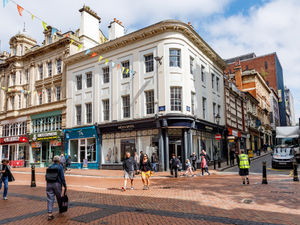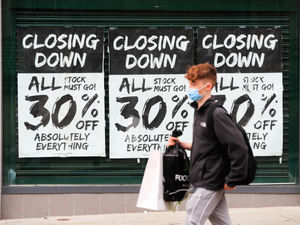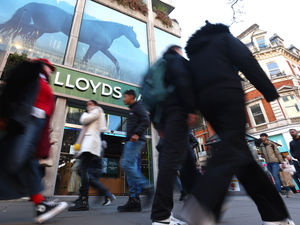Nando's expansion and job losses at Metro Bank – why they reflect the state of our shopping centres
It is the tale of two high street businesses – one looking to grow and the other making cost-cutting redundancies.
The fortunes of Nandos and Metro Bank hold up a mirror to mixed fortunes in our towns and shopping centres.
Nandos has expanded fast, both in town centres but also on edge of town retail developments where shops and entertainment mix together. It has thrived on the willingness of people to pay to eat out as part of a wider experience of shopping or perhaps a trip to the cinema or ten-pin bowling.
Metro Bank wanted to bring personal service back to the high street. It offered longer opening hours and moved into traditional town and city centres, as well as creating branches in centres like Merry Hill. But it has struggled and is now reviewing its current pledge to be open seven days a week.
Both reflect the changing nature of a society that is now doing much of its business, including banking, online. Getting out of the house for a shopping trip or a visit to the bank is now tough for many when they can do what they need to do with a laptop at home.
Many who do venture out to towns or edge of town retail centres are now looking for an experience – a spot of shopping but also some food, drinks and perhaps the chance to take in the latest film.
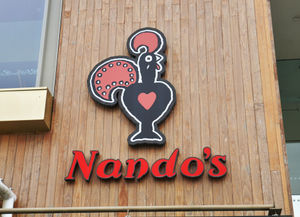
Nando's says it will continue to expand with new UK restaurants despite the uncertain economic backdrop putting pressure on customer budgets.
The peri-peri chicken chain has said it plans to open 14 new sites in the UK this financial year.
It came as the restaurant chain's business, excluding South Africa, revealed it returned to profit for the first time since the pandemic struck in its latest set of financial accounts.
Hospitality firms have faced a challenging period since the pandemic struck, with forced closures followed by sharp rises in energy, food and labour costs, while customer budgets have also tightened more recently.
Nando's said in the accounts that cost inflation has remained "at elevated levels" into the current financial year.
Prices have gone up, but with it says customers still want to enjoy a treat when they go out and numbers have remained healthy.
Nando's revealed the sales jumped by almost a fifth to £1.27 billion for the year, up from £1.06 billion a year earlier.
Sales jumped beyond pre-pandemic levels as it was boosted by a strong recovery in UK consumer demand as well as further restaurant openings.
Rob Papps, group chief executive of Nando's, said: "The macro-economic outlook for 2024 remains uncertain but we are continuing to invest for the future with further menu innovation, enhancements to our digital capabilities and new restaurant openings planned in all our markets, including 14 in the UK."
It came as Nando's Group Holdings swung to a £17 million operating profit for the year to February 26, compared with a £1.2 million operating loss a year earlier.
The company still however fell to a £86.2 million pre-tax loss for the latest year after exceptional items.
Mr Papps added: "The 2023 financial year saw Nando's deliver a steady recovery to pre-pandemic sales and a return to operating profit driven by strong consumer demand for our flame-grilled peri-peri chicken supported by our brand and customer proposition.
"Despite the improved sales performance, cost pressures including higher energy, labour and food prices remained a challenge."
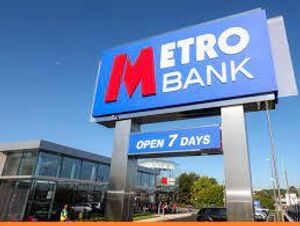
Over at Metro Bank there is far less optimism to be found.
It is cutting around 850 jobs and reviewing whether to stay open seven days a week under plans to slash costs.
The troubled high street lender said it is set to axe 20 per cent of its 4,266-strong workforce as part of aims to ramp up cost savings to £50 million a year.
It said it is in talks with the City regulator, the Financial Conduct Authority, about cutting back its branch opening days and extended store hours and the impact this could have on customers.
Metro Bank, which has branches in Wolverhampton and at Merry Hill, Dudley, is currently open from 8.30am until 5pm Monday to Saturday and 11am to 5pm on Sunday.
It did not give further details of planned changes to its opening days and hours.
The group also did not reveal which roles will be affected, but the review is expected to be across the business and Metro Bank said it is investing in automation for service and back-office operations.
Most of the cost savings are expected to be made next year.
The cost-cutting comes after Metro Bank shareholders on Monday approved a funding package worth £925 million to secure its future on Britain's high streets.
Shareholders gave the green light to a capital fundraise which will see Colombian billionaire Jaime Gilinski Bacal become a majority shareholder in the group with a 53 per cent stake.
Metro Bank chief executive Daniel Frumkin said: "The support shown from our investors through this transaction will allow Metro Bank to accelerate its growth plans, with the new capital allowing us to unlock the potential in the business and deliver sustainable profitable returns as we strive to be the number one community bank.
"We remain committed to stores and the high street but will transition to a more cost-efficient business model while remaining focused on customer service."
The group insisted on Thursday that cost-cutting will not affect its growth and that it still plans to open around 11 sites, largely across the North of England, by the end of 2025.
But the plans to review its seven-day-a-week and extended hours service marks a key row-back in its aim to focus on high street banking.
It was set up in 2010 as a challenger to the regular banks.
At the time regulators had been pushing for more competition in the market in the wake of the financial crash, allowing Metro Bank to become the first new high street bank in the UK for more than 150 years.
At the time, the plan was to open between 200 and 250 branches in Greater London within the decade. It now has 76 branches across the UK, and 2.7 million customers.
But the big dreams took a hit in 2019 when it was forced to go to shareholders to raise £350 million after it discovered a miscalculation in its books.
It led to shares, which were trading at more than £40 each at one point in 2018, falling to £2.10 by the start of 2020, and the stock has since tumbled further, to less than 41p, amid recent funding woes.
The business suffered after regulators in September refused to approve a request from the bank to lower the capital requirements attached to its mortgage business.
It has also struggled to turn a profit and reports emerged in October that the bank was taking action to shore up its finances by raising money and refinancing debts.

